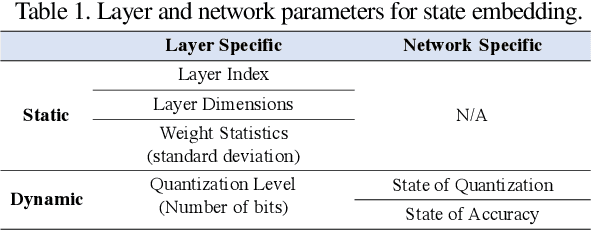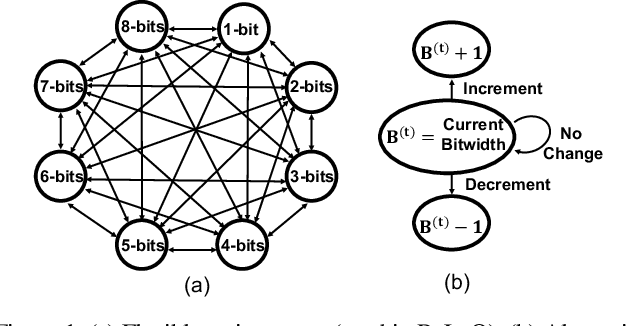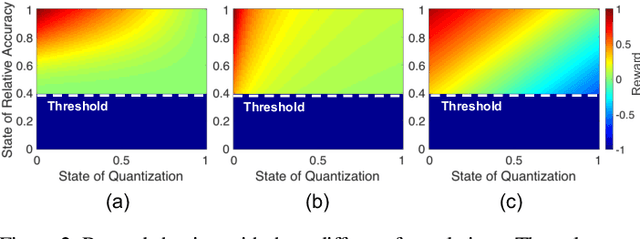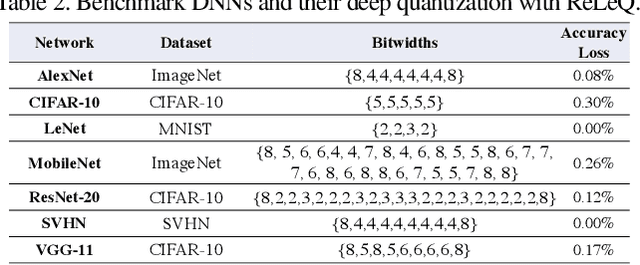FatemehSadat Mireshghallah
ReLeQ: An Automatic Reinforcement Learning Approach for Deep Quantization of Neural Networks
Dec 10, 2018



Abstract:Despite numerous state-of-the-art applications of Deep Neural Networks (DNNs) in a wide range of real-world tasks, two major challenges hinder further advances in DNNs: hyperparameter optimization and constrained power resources, which is a significant concern in embedded devices. DNNs become increasingly difficult to train and deploy as they grow in size due to both computational intensity and the large memory footprint. Recent efforts show that quantizing weights of deep neural networks to lower bitwidths takes a significant step toward mitigating the mentioned issues, by reducing memory bandwidth and using limited computational resources which is important for deploying DNN models to devices with limited resources. This paper builds upon the algorithmic insight that the bitwidth of operations in DNNs can be reduced without compromising their classification accuracy. Deep quantization (quantizing bitwidths below eight) while maintaining accuracy, requires magnificent manual effort and hyper-parameter tuning as well as re-training. This paper tackles the aforementioned problems by designing an end to end framework, dubbed ReLeQ, to automate DNN quantization. We formulate DNN quantization as an optimization problem and use a state-of-the-art policy gradient based Reinforcement Learning (RL) algorithm, Proximal Policy Optimization (PPO) to efficiently explore the large design space of DNN quantization and solve the defined optimization problem. To show the effectiveness of ReLeQ, we evaluated it across several neural networks including MNIST, CIFAR10, SVHN. ReLeQ quantizes the weights of these networks to average bitwidths of 2.25, 5 and 4 respectively while maintaining the final accuracy loss below 0.3%.
 Add to Chrome
Add to Chrome Add to Firefox
Add to Firefox Add to Edge
Add to Edge